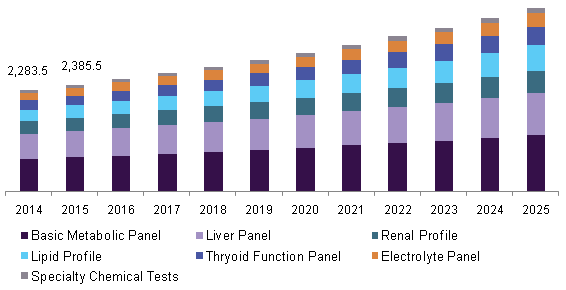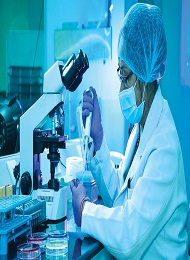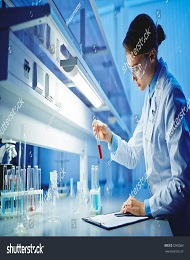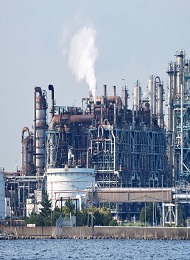Track 1: Covid 19 and Clinical Chemistry Laboratories
The Clinical Chemistry Laboratory is a state-of-the-art, fully automated laboratory. Clinical Chemistry includes STAT and routine testing in the areas of general chemistry, endocrinology, special chemistry, immunology and toxicology. The Division of Clinical Pathology at group of laboratory physicians and doctoral laboratory scientists who innovate clinical science to shape the future of diagnostic testing.
Track 2: Clinical Chemistry test for patients with Covid 19
The Diagnostic, staging, prognostication, tracking, and epidemiological surveillance are all performed in the clinical chemistry laboratory. Clinical chemists have been tasked with validating, automating, and extending previously semi-automated processes for the COVID-19 virus, despite the fact that molecular diagnostic research for the virus accounts for the majority of the work. The usefulness of molecular diagnostic and serology tests is growing and serology testing for patients with COVID-19.
Track 3: Clinical & Medical Biochemistry
Clinical biochemistry and Medical biochemistry. Both deal with the study of chemistry of life .Clinical Biochemistry is a peer-reviewed scientific discipline that studies the analytical and clinical aspects of laboratory tests used in humans for diagnosis, molecular biology and genetics, prognosis, treatment and therapy, and disease monitoring.
Track 4: Analytical Chemistry
Analytical chemistry is the study and application of instruments and methods for separating, identifying, and quantifying matter. 1st Separation, recognition, and quantification can be used alone or in combination with other methods in practise. Separation is the process of isolating analytes. Quantitative analysis decides the numerical quantity or concentration, while qualitative analysis defines analytes.
Track 5: Laboratory Hemostasis
The tests used to diagnose the hemostasis system are known as blood clotting tests. The coagulometer is a medical laboratory analyzer that is used to check the hemostasis mechanism. Different methods of activation and observation of the formation of blood clots in blood or blood plasma are available with modern coagulometers.
Track 6: Clinical research informatics
Clinical Research Informatics is the application of informatics to the discovery and management of new health and disease expertise. It requires knowledge processing for clinical trials as well as informatics for secondary research that uses clinical data.
Track 7: Molecular Biology and Immuno chemistry
Immunochemistry is the analysis of the immune system's chemistry. 1st The structures, functions, interactions, and development of the chemical components of the immune system (antibodies/immunoglobulins, toxin, epitopes of proteins like CD4, antitoxins, cytokines/chemokines, antigens) are studied. Immune responses and immune materials/products determination by immuno are also included. The elements of the immune system's identities and functions Immunochemistry also refers to the visualisation of chemically labelled antigen molecules using immune system components, especially antibodies.
Track 8: Mass Spectrometry in Clinical Chemistry
Mass spectrometry's clinical laboratory success has traditionally been limited to drug of abuse confirmations, new born screening, and steroid analysis. Mass spectrometry's clinical applications are growing, and the technique is now used in almost every field of laboratory medicine.
Track 9: Computational Chemistry Research
Mass spectrometry has historically been used in clinical laboratories for drug of abuse confirmations, new born screening, and steroid analysis. The clinical applications of mass spectrometry are expanding, and the technique is now used in almost every area of laboratory medicine. Computational chemistry is the study of the structures and properties of molecules and materials using computer modelling and simulation, including ab initio methods focused on quantum chemistry and analytical approaches.
Track 10: Clinical Chemistry and Nutrition
Clinical nutrition refers to the nutrition of patients in medical settings. In this context, clinical refers to the treatment of patients, which includes not just outpatients in clinics, but also (and mostly) inpatients in hospitals. It largely encompasses the scientific disciplines of nutrition and dietetics. It seeks to maintain a healthy energy balance in patients while also supplying enough levels of other nutrients such as vitamins and minerals.
Track 11: Chemistry Education Research Trends
Empirical chemistry education research (CER) studies accounted of the publications in the four science education journals, according to our findings. Conceptions and conceptual transformation were the most often published topic of research, and the majority of studies used mixed techniques. CER studies differ from chemistry research in that the systems being examined (for the most part) are made up of humans rather than molecules, and hence are subject to the whims of human behaviour. Learning scientists' techniques have influenced CER studies over the years.
Track 12: Advances in Clinical chemistry and Laboratory Medicine
Clinical chemistry and laboratory medicine examine body fluids such as blood, semen, spinal fluid, faeces, skin, and other materials in order to perform qualitative and quantitative tests. A material or chemical constituent that is of interest in an analytical procedure is referred to as an analyte, part (in clinical chemistry), or chemical species. Analyses are the purest compounds on the planet.
Track 13: Clinical Chemistry
Clinical chemistry (sometimes referred to as chemical pathology, clinical biochemistry, or medical biochemistry) is a branch of chemistry that deals with the examination of body fluids for diagnostic and therapeutic purposes. It is a type of biochemistry that is employed in practise (not to be confused with medicinal chemistry, which involves basic research for drug development.
Track 14: Forensic Chemistry
Forensic chemistry is a branch of chemistry and a subfield of it. Unidentified items discovered at a crime scene may be identified with the aid of a forensic chemist. For detecting unknown substances, specialists in this area have a variety of methods and instruments.
Track 15: Biological chemistry
The study of chemical processes within and pertaining to live beings is known as biochemistry or biological chemistry. Biochemistry is organised into three fields: structural biology, enzymology, and metabolism. It is a sub-discipline of both chemistry and biology.
Track 16: Opportunities and Challenges in Drug Design
This Drug Design session is intended to highlight the roadblocks that stand in the way of this noble approach to drug design, as well as advanced and current directional approaches that can be implemented on a multidisciplinary and transdisciplinary level to expand future opportunities in this sector.
Track 17: Polymer chemistry
Polymer chemistry is a branch of science that studies polymers and macromolecules' chemical production, structure, and chemical and physical properties. The principles and methods used within polymer chemistry are also applicable through a wide range of other chemistry sub-disciplines like organic chemistry, analytical chemistry, and physical chemistry. Many materials have polymeric structures, from fully inorganic metals and ceramics to DNA and other biological molecules, however, polymer chemistry is typically referred to in the context of synthetic materials.
Track 18: Radiochemistry
Radiochemistry is a branch of chemistry that studies the characteristics and chemical interactions of non-radioactive isotopes using radioactive isotopes of elements (often within radiochemistry the absence of radioactivity leads to a substance being described as being inactive as the isotopes are stable). Much of radiochemistry is concerned with the application of radiation to the study of everyday phenomena.
Track 19: Metabolic Biochemistry
Metabolism is the process by which living cells get, convert, and store energy from food. Metabolism is a complicated network of chemical reactions that takes place within the limits of a cell and may be broken down into self-contained components known as pathways. Catabolism, or the oxidative destruction of molecules, and anabolism are both aided by metabolic pathways.
The global clinical chemistry analyzer market was estimated at US$ 9.12 billion in 2019 and is projected to grow at a CAGR of 5.97 percent to US$ 14.5 billion by 2026. The effect of COVID-19 lockdown on market leaders, followers, and disruptors' revenue is examined in the study. Since the lockout was applied differently in different areas and nations, the effect of the lockdown has been mixed. Regions and segments perceive the same in different ways. The study has covered the market's existing short and long-term impacts, and it will aid decision-makers in developing company plans and strategies by area.

A clinical chemistry analyzer is a test that measures and analyses chemical components in bodily fluids including serum, plasma, and urine. A nutritional condition clinical chemistry analyzer test is used to assess kidney and liver function. Increasing health-care costs, rapid growth in the diagnostic industry, and rising incidence of lifestyle disease, such as diabetes, are all factors to consider. Obesity and diabetes are two diseases that affect people. Furthermore, the global clinical chemistry analyzer market is being boosted by factors such as an ageing population, increased demand for laboratory automation, and increased understanding of preventive healthcare. The market is also growing as a result of technological advancements and an increase in the global number of in-vitro diagnostic tests. The global clinical chemistry analyzer market, on the other hand, is being held back by high costs, the possibility of ambiguous results, and a scarcity of qualified and skilled professionals. Analyzers are divided into small, medium, large, and very large parts, and reagents are divided into calibrators, controls, standards, and other reagents. Reagents are leading the market because they are considered to be highly cost-effective, have the best sensitivity, linearity, and precision, and have the least amount of performance variance. Enzymes, substrates, complex proteins, electrolytes, and lipids are among the reagents used to achieve reliable results in analytical procedures.
Global Clinical Chemistry Analyzer Market, by Test:
Basic Metabolic Panel(BMP)
Electrolyte Panel
Liver Panel
Lipid Profile
Renal Profile
Thyroid Function Panel
Specialty Chemical Tests
Global Clinical Chemistry Analyzer Market, by End-use:
Hospitals
Academic Research Centers
Diagnostic Laboratories
Others
On behalf of the Chemistry Congress 2019 organising committee, conference series LLC Ltd cordially invites chemistry and chemical researchers, scholars, scientific societies, delegates, students, industry professionals, and executives to attend the “12th Global Experts Meeting on Chemistry and Drug Design” to be held in Seoul, South Korea on October 14-15, 2019. Chemistry Conferences is a global discussion and learning forum for Chemistry Congress 2019, which covers all aspects of chemistry and drug design mechanisms. The Chemistry Congress 2019 has been meticulously planned, with a focus on making it one of the most technologically advanced international conferences. Our Organizing Committee members have put together.
The theme and tracks were carefully chosen to revolve around recent developments, advances, and emerging technologies in the field of chemistry, as well as some graphic-oriented techniques that contribute to customization in drug discovery and design mechanisms. Overall, it's a continuation of the previous ten seasons' legacy. This season of Chemistry Congress promises to be the best match for all those intelligent and aspiring minds living with chemistry and looking for a deeper drill in this concept to explore themselves and add on some lifetime experience by sharing shared participation with some of the world's leading chemists in one of the world's most beautiful cities, Seoul, South Korea.
Medicinal Chemistry and Drug Discovery
Structure-based drug design, virtual screening
Molecular Biology - A New Route to Drug Discovery
Computer Aided Drug Designing
Cancer Studies: Drug Delivery Chemistry
Neuro Degenerative Disease
New Trends In Pharmacology And Drug Development
Latest Developments in Alzheimer’s Drugs







